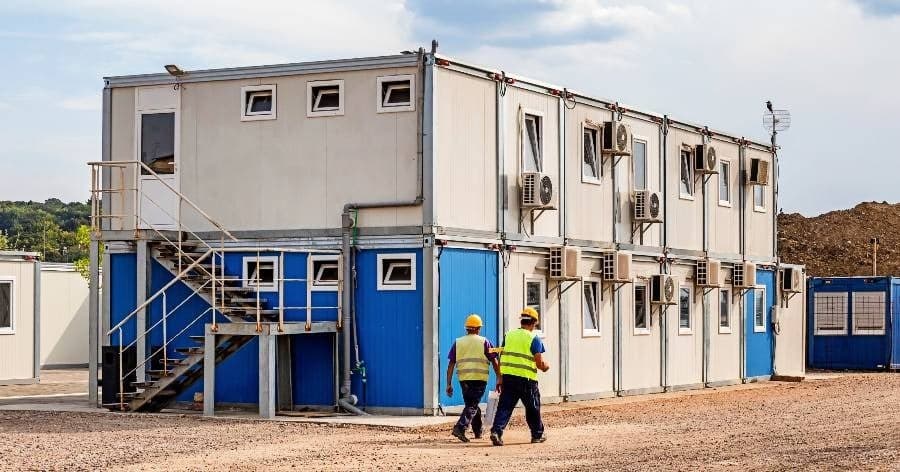Thousands of oil workers are living in dormitory-like compounds in the Permian Basin, which is drawing fresh investment as oil prices have climbed higher.
The Permian Basin, one of the world’s biggest oil plays, is drawing billions of dollars in new investment. Companies are scrambling to find people to do everything from operating drilling rigs to driving trucks. Wages have reached such lofty levels that even unskilled laborers can earn $100,000 a year.
Many of the jobs are in remote areas with no houses, schools, or supermarkets, so free room and board are essential perks for workers, most of whom elect to leave their families at home. Thousands now reside in dormitory-like compounds in West Texas and eastern New Mexico, and more are on the way.
Aries Residence Suites, which has 11 locations spread out over North Dakota, Oklahoma, and Texas, is expanding Goldsmith, which is near capacity, to 400 beds and will soon break ground on a 500-bed facility in Orla, Texas, a town with new oilfield activity but a population of less than 300. “We’re challenged to retain employees to keep up with our growing city,” Jerry Morales, mayor of Midland, Texas, told Bloomberg. “We’ve lost our traffic engineers.
We’ve lost much-needed manpower in our water utilities to fix broken lines. We can’t keep enough labor to maintain our parks so our kids can be safe.”
Permian Lodging, which operates one of the biggest man camps in the basin, says all 1,200 units at a 90-acre lot outside Midland, Texas, are occupied, and it recently built a slightly smaller facility roughly 100 miles southwest, near Pecos. The company is also readying two other camps in Texas and one in New Mexico, for another 1,300 beds.
While the industry desperately needs more workers, few are willing to relocate full time to the sparsely populated rural areas in which the drilling takes place. Many jobs are an hour’s drive or more from the nearest supermarket, restaurant, or bar. Temperatures can linger above 100F for days, and the absence of trees means no natural shade for workers pulling 14-hour shifts. Conditions like that are why Robert Wardrup, 54, calls the Permian “the armpit of Texas.”
Wardrup is shacking up at the Aries camp in Goldsmith while working as a cement supervisor for Baker Hughes’s BJ Services unit. He arrived about a year ago after being laid off from an oil industry job in Alaska’s Prudhoe Bay, where investment has declined. “It’s a very good living,” Wardrup, who makes $27.50 an hour, told Bloomberg. “If you don’t have a college education, where else are you going to make $100,000 a year?”
There are few alternatives to the man camps, because the housing stock in the Permian was paltry to begin with. A 700-square-foot apartment in Midland—the Permian’s unofficial capital—goes for $1,300 a month, a third more than last year.
For the oil and gas industry, the man camps are the lowest-cost alternative, especially since most employees work weeks-long shifts broken up by short trips home. A double room at a man camp can be as low as $36 a night, while motels and hotels in Midland and Odessa can run as high as $500.
The digs aren’t fancy. Most rooms aren’t bigger than a standard walk-in closet, and workers often bunk with someone they’ve never met. At camps where meal plans aren’t included, kitchens are shared among 10 or more workers.
Retaining staff for housecleaning and maintenance is also difficult, because many get poached to work better-paying oil jobs. Today, most facilities don’t allow alcohol, and expanded amenities help tenants cope with boredom during the hours when they’re not at work.
Companies also say they are working to make sure women feel safe and comfortable in the camps, though there are few of them. Communities that have seen their share of oil booms and busts view the man camps as a necessary part of supporting the current economic expansion for as long as it lasts.
“It’s not that man camps are bad,” Ken Winkles Jr., executive director of the Pecos Economic Development Corp., told Bloomberg. “It’s just that we would prefer to have families in here.”

